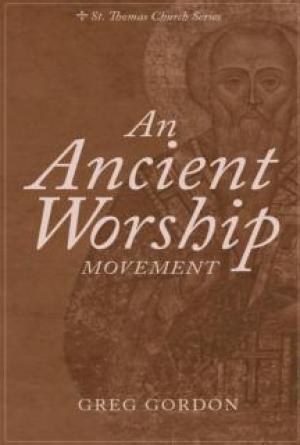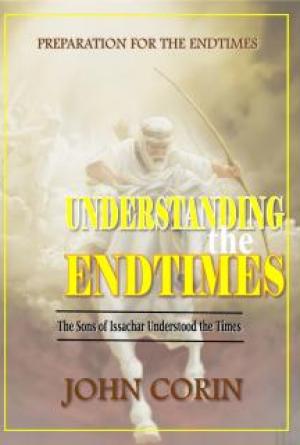7. It may be said, If the union of liberty with passive power be the origin of moral evil, and if the holiest creatures in heaven are both free and the subjects of passive power, how is it that they do not sin! If both are united in the same persons, does the one never terminate upon; or unite itself to the other? In answer to this enquiry, we must distinguish between having the principle, and being under its influence without control. Though the spirits of the just, and holy angels, have in them the principle, as the condition of their created existence, yet it is counteracted by sovereign favour. They may say, as well as Paul, by the grace of God we are what we are. The object of divine support is the disposition, or the seat of moral action; this being made good, or pure, or holy, prior to all acts of the will, effectually counteracts the influence of passive power. The Liberty and choice of a heavenly being therefore, terminating on such a disposition, no acts but such as are holy can ensue. Hence,
8. If we would know how this is consistent with the actual fall of beings who were once in this condition, we must attend to another important consideration; which is, that when God at any time deals in mere equity with a moral agent, without the counteracting influence of sovereign favour, the inevitable consequence is, that his liberty, or free choice, will terminate upon his passive power. Hence the certainty of the futurition of moral evil, in all possible degrees and circumstances, without any decretive efficiency in its production.—If it be asked, why the exercise of equity is assigned as the occasion of this union, rather than sovereignty; or, why leaving a free agent to the influence of his passive power should not be considered a sovereign rather than an equitable act? The best answer to this enquiry, is a definition of the two terms. By equity then I mean the principle that gives to each his due; by sovereignty, a right to do whatsoever is not inconsistent with equity. And from this definition it must appear that there may he a two-fold deviation from equity, viz. giving more than is due, or less than is due; more good and less evil, or more evil and less good than is equitable. The former of these, more good and less evil, must needs be for the advantage of the creature; and therefore it may be called a gracious deviation. Without it, there would be no room for either mercy or grace. The latter, more evil and less good than is due, is properly called injustice, and is such a deviation from equity as is not compatible with the divine character. Therefore, to do us good beyond our claim is an act of sovereignty; but to give us neither more nor less than is our due is to deal with us in pure equity.
9. Hence it follows, that when God deals with angels or men in sovereignty, according to the definitions, he does them good beyond their claim. But to make this to be the immediate cause of the sin of men and angels is absurd. On the other hand, it is incompatible with the divine character, as before observed, to give them less good and more evil than is their due; and therefore this cannot be the cause of sin, as sure as God is incapable of exercising injustice.—Wherefore, it remains that then alone can moral agents fall into sin when dealt with in pure equity. In the act of defection, or becoming sinful, they are equally free from being impelled by injustice, and upheld by sovereign favour.
COROLLARIES.
1. All the good and happiness in the universe of created beings are the fruit of Sovereignty and Decree.
2. All the moral evil and misery in the universe are the offspring of liberty, a natural good, terminating or acting upon, or united to passive power, a natural evil not counteracted by sovereignly gracious acts on the disposition, or the seat of the moral principle, which may be called analogically the heart.
3. As every act and degree of liberty is perfectly fore-known to God, as the effect of his own decree, and every hypothetical tendency of passive power, though itself not an object of decree, is equally fore-known, it follows, that every sin is as accurately fore-known as if decreed, and has an equally infallible ground of certain futurition.
239. It is allowed that there is a difference between the cause of sin, as a principle, and being a sinner; but when applied to an agent, to be the author or the cause of sin, and to be a sinner, is the same thing. Therefore, when applied to God, in no proper sense whatever can it be said that he is the author of sin.—“If by the author of sin is meant (says President Edwards) the permitter, or a not hinderer of sin, and at the same time a disposer of the state of events in such a manner, for wise, holy, and most excellent ends and purposes, that sin infallibly follows: I say, if this be all that is meant by the author of sin, I do not deny that God is the author of sin, though I dislike and reject the phrase, as that which by use and custom is apt to carry another sense.” Edwards on the Will, Part iv. Sect. xi.
But though this acute and excellent writer disavows the use of the phrase, he no where assigns the true ground why it should not be used. The truth is, he does not seem to have been aware of any alternative between the certain futurition of sin and its being decreed. And his only method of warding off the most ruinous consequences appears to have been adopted for want of a better, and not from the satisfactory nature of that method. His view, in brief, is this: God is a being of infinite goodness and wisdom; he can will nothing but good; the system he hath adopted is the best; now, says he, “if the will be good, and the object of his will be, all things considered, good and best, then the choosing and willing it, is not willing evil. And if so, then his ordering according to that will is not doing evil.”
It is very seldom that this eminent author fails in his reasoning; but here certainly he does fail. The phrases willing evil, and doing evil, are not used in the same sense in both parts of the premises, from whence the conclusion is inferred. A system, all things considered, being best, is no good reason why each individual part of it is good. And it may be forcibly retorted; a system which includes an infinite evil as a part of its institution cannot be from God. Nor can it be said that this is arguing against fact, without begging the question, that God has appointed the evil which is blended with the good.—On the subject itself let the following things be considered:
1. If choosing and willing a system in which sin is a decreed part is not willing evil, because the system is good and best, all things considered then it would inevitably follow, that sin, because such a part of that system is not an evil. But, it may be said, It is willing it for a good end. Does then a good end or intention destroy the nature of sin? Was the sin of Paul or any other saint anihilated because he sincerely aimed at the Glory of God? Or has any design, however comprehensive, exalted or sincere, the least tendency to alter the nature of sin?
2. Allowing as incontrovertible that the present system of things is the best, all things considered, and that sin is actually blended with it, it does not thence follow that the sin itself is decreed, or is any part of divine appointment. For not to hinder sin, is extremely different from being the cause or author of it. The one is perfectly consistent with equity, the other would be an act of injustice.
3. It is a sentiment so repugnant to all analogical propriety, to do evil that good may come, that it cannot be supposed a man of Mr. Edwards’ piety would have adopted any thing like it, but from what appeared to him an inevitable necessity. And indeed whoever assumes the principle, that every event comes to pass from decretive necessity, sin not excepted, must of course be driven to his conclusion. But this valuable author had no need to recur to that opinion, in order to establish his theory of hypothetical necessity; for this will stand on a rock, immoveably, without such aid.
4. In reality, the certain futurition of good, and that of evil, arises from different, yea from diametrically opposite causes. The one flows from the operative will of God, and is fore-known to be future because decreed, the other flows from a deficient or privative cause, passive power, when united to liberty, as before explained, which exists only in created beings, and in all these, as a contrast to self-existence, independence, and all-sufficiency. Yet this is the subject of hypothetical tendencies and results no less than the good to which it stands opposed, in all the boundless varieties of its blendings; therefore no case can be so complicated, but to infinite prescience the event must appear with equal certainty as if decreed.
240. “Equally impious and needless.” Needless, because the existence of sin is fairly and fully accounted for on another principle; impious, because it ascribes to God the worst of all principles, the causation of sin. That God superintends, directs, and over-rules the actions of men is worthy of him; and equally so that he does not hinder the existence of moral evil; but that he is a positive and efficacious cause of moral evil, or that this is consistent with either his justice or holiness can never be proved. Dr. Hopkins, indeed, says, that “the attempt to distinguish between the sinful volitions or actions of men as natural and moral actions; and making God the origin and cause of them considered as natural actions, and men the cause and authors of the depravity and sin which is in them, is, it is believed, unintelligible—unless by making this distinction it be meant, that in every sinful action, God is not the sinful cause of it.” The author, however, candidly adds, “But if the contrary can be made to appear, this doctrine, with all that is implied in it, shall be given up and renounced.” As the removal of this principle, and the establishment of the other, appear to me of the highest importance in theology, a few remarks, in addition to those already made, may not be superfluous, as tending to exhibit the principle here maintained in different lights and connexions; and when all are properly examined, it is probable they will not be wholly “unintelligible.”
1. God, JEHOVAH, is the infinite and eternal Essence, which is of absolute necessity—the self-existent, independent, and all-sufficient Being—from eternity to eternity generating his own light and joy, called his only begotten Son; not from mere will, but of the same necessity.
2. God in his boundless all-sufficiency views all possibles with all their positive and privative tendencies. That all possibles have their positive tendencies is as plain as that two added to three make five. Were there no positive tendencies, there could be no hypothetical certainty, no law of nature, no connexion between cause and effect. And it is equally true, though not equally plain, that there are privative tendencies in all beings but that one who exists of absolute necessity. To suppose the contrary, is the same as to suppose that a creature may be made independent, and all-sufficient. But that is, every reasonable being must allow, absolutely impossible, as implying the grossest contradiction. On this demonstrated fact rests unavoidably the existence of that principle in every created nature which I call Passive Power. Yet.
3. It does not follow that the mere collateral existence of these two principles in the same subject must needs produce moral evil. Then alone does this take place when the one terminates upon, or is united to the other, without the interposition of sovereign favour. It is not in the power of equity to assist. For the exercise of equity is to give each his due; but to prevent sin is not due to the subject of it, otherwise no one could ever sin but on condition of injustice in God.
4. After all, it may be objected, that the scriptures ascribe to God the causation of moral evil; as, hardening the heart of Pharaoh—hardening whom he will—making the wicked for the day of evil—appointing to destruction—determining the death of Christ—delivering him by determinate counsel—doing all evil in a city—making vessels to dishonour—fitting them for destruction, &c.—In reply to this objection it must be considered, that whatever the import of such representations may be, no interpretation which is unworthy of God can be the true meaning—that the idioms of the sacred languages ascribing cause or operation to God must be understood according to the nature of the subject—and, what is particularly to our purpose, that active verbs which denote making, doing, causing, and the like, often denote a declaration of the thing done, or that shall take place; or a permission of it.
Take a few specimens. Thus Acts x. 15. “What God hath cleansed,” means, what God hath declared to be clean.—Isai. vi. 9, 10. The prophet is commanded to tell the people, “understand not, perceive not;” and he is ordered to “make the heart of this people fat, to make their ears heavy, and to shut their eyes.” And what can this mean more than to declare a fact, either what they then were, or what they would be?—So Jer. i. 10. The Prophet’s declaration of what should be, is called his rooting out pulling down, &c.—Ezek. xliii. 3. The prophet says, “when I came to destroy the city;” his meaning undoubtedly is, When I came to prophecy or declare that the city should be destroyed.—Exod. v. 22. “Lord, wherefore hast thou evil entreated this people?” Moses means, Wherefore hast thou permitted them to be evil entreated?—Jer. iv. 10. “Lord God, thou hast greatly deceived this people;” that is, permitted or not hindered them to be deceived by the false Prophets.—Ezek. xiv. 9. “I the Lord have deceived that prophet.” Can any thing else be meant than suffering him to deceive himself?—Matt. xi. 25. “Thou hast hid these things” i. e. not revealed.——Thus also, Rom. ix. 18. “Whom he will he hardeneth,” he suffereth to be hardened.—Rom. xi. 8. “God gave them a spirit of slumber,” i. e. permitted them to slumber. 2 Thes. ii. 11. “God shall send them strong delusion, that they should believe a lie;” i. e. shall permit them to be deluded so that they shall believe a lie.—Exod. vii. 3. &c. “And I will harden Pharaoh’s heart,” i. e. I will suffer it to be hardened. Matt. x. 34, 35. “I am not come to send peace, but a sword; For I am come to set a man at variance against his father,” That is, my coming shall be the innocent occasion of wars and variance.—Jude 4. “Who were before of old ordained to this condemnation;” i. e. foretold, or forewritten, as the word signifies; announced in the sacred pages, and proscribed by divine law.
But the passage above all others, which appears to countenance the notion, that God is the cause of sin, is 1 Pet. ii. 8. “A stone of stumbling, and a rock of offence, even in them which stumble at the word, being disobedient, whereunto also they were appointed.” i. e. unto which thing, their stumbling, they were appointed because disobedient. The Greek participle includes the cause of their falling; as Heb. ii. 3. Neglecting so great salvation, how shall we escape? To which not escaping, they were appointed, for neglecting so great salvation. A striking contrast to this we have, John vii. 17. “If any man will do his will, he shall know of the doctrine;” but the disobedient shall, according to an awful but equitable appointment, “stumble, and fall, and be broken, and be snared, and be taken.”—(Isa. viii. 15.) We have a further illustration of this meaning in Heb. iii. 18. “To whom sware he that they should not enter into his rest, but to them that believe not?” i. e. Who were appointed to destruction? The answer is, the disobedient; for the original word is the same here as in Peter, under a different inflection. And it is added, ver. 19. “So they could not enter in because of unbelief.”—Thus also Rom. xi. 7. “The rest were blinded, or hardened;” i. e. were suffered to be blind or hard. And that this is the meaning is decided by ver. 20. “Because of unbelief they were broken off.”
Upon the whole, Peter intimates, that none should be offended at such characters, men of learning and eminence rejecting the Messiah and his gospel. Their end is what might be expected, as foretold by the prophets, according to God’s righteous government, and his eternal appointment, or determination, respecting all such offenders. Their habitual unbelieving disobedience was the cause, but their actual stumbling at the word to their destruction was the natural, the righteous, the appointed effect. To this they were appointed, placed, or set forth (as Pharaoh was raised up) by the righteous judgment of God, who resisteth the proud and disobedient; in order to shew forth the glory of his justice in them. They were personally appointed to exalted situations, being civil and ecclesiastical builders; they were suffered to reject Christ, in pure equity; and thus were deservedly constituted awful warnings to others.
241. This notion, perhaps more than any other, has been termed Baxterianism, and yet it is not easy to say that Mr. Baxter ever maintained it. He says indeed “all have so much (grace) as bringeth and leaveth the success to man’s will;” and this in a discourse wherein he allows that God hath “positively elected certain persons by an absolute decree to overcome all their resistances of his Spirit, and to draw them to Christ, and by Christ to himself, by such a power and way as shall infallibly convert and save them.” He moreover says, “What if men cannot here tell how to resolve the question, whether any or how many are ever converted or saved by that mere grace which we call sufficient, or rather necessary, and common to those that are not converted; and whether man’s will ever make a saving determining improvement of it?”—“And yet,” he adds, “this question itself is formed on false suppositions and is capable of a satisfactory solution.” Baxter’s Works, Vol. ii. p. 929.—On the subject of this Note the author begs leave to refer his readers to Doddridge’s Works, Vol. v. p. 238, 239, Notes.
242. The nature of God, his holy will, and our peculiar relation to him, form an adamantine chain of obligation to duty which cannot with impunity be broken; from which predestination is so far from releasing us, that it forms another chain of gold that shall finally prevail; and divine grace personally experienced is a silken cord to draw the soul along in the path of duty. But do these powerful ties render useless God’s reasoning with sinners, his exhortations to repentance, to believing, to obedience, and to every particular branch of duty? No: for these methods are the very means to attain the end, and form a part of the decree itself.
Transcriber’s Notes:
Missing or obscured punctuation was corrected. The author's archaic punctuation and spellings have been retained.







